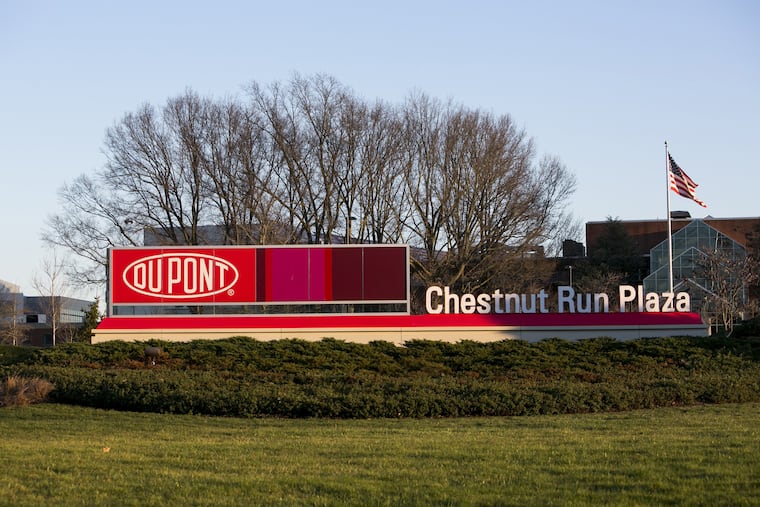Downsizing DuPont sells chip business for $450 million, spins off consultants
DuPont Co. sells a computer-supply business for $450 million and spins off its 'sustainabilty' group in an LBO

DuPont Co. has agreed to sell its Compound Semiconductor Solutions business to SK Siltron, a South Korean silicon wafer maker that has been building itself up as a rival to computer suppliers from the U.S., Japan, and China, for $450 million, the buyer said today.
DuPont shares rose 1.3% to $71.40, its highest closing price since early last month, but still below where it traded when Edward Breen, now executive chairman, became CEO in 2015.
The company’s East Asian semiconductor plants are “state of the art,” but it “is not a strategic priority” for the DuPont Electronics & Imaging group, its president, Jon Kemp, said in a statement. “SK Siltron will be a better owner.” The group employs around 55 in the United States, mostly at a site in Auburn, Mich.
The sale came a week after DuPont said it had spun off its 700-employee DuPont Sustainable Solutions (DSS) unit in a management-led private-equity buyout “as an independent global operations management consulting firm” for client corporations, under chief executive Davide Vassallo and backed by Switzerland-based Gyrus Capital.
DuPont said in a statement that the decision “responds to a growing client need to rapidly access solutions for evolving global challenges, including advancing technologies, maturing systems and processes, the changing workforce, the digital revolution and plateaued safety performance.” DuPont CEO Marc Doyle called Vassallo’s staff “well-positioned” for “this exciting endeavor.” Though it is separate, DSS will use DuPont offices and its oval logo, for a time.
The new business’ board includes Vassallo, chief financial officer Vladimir Kral, DuPont Safety & Construction boss Rose Lee, and three representatives of Gyrus, a firm formed last year by European and U.S. buyout investors. Terms of the spin-off weren’t immediately disclosed.
Based in Wilmington, DuPont is in the process of selling businesses with $2 billion in yearly sales, under Breen. He previously dismembered another locally based conglomerate, the former Tyco International, in the 2000s, cutting costs while boosting the value of investors’ and executives’ shareholdings as buyers paid premium prices for business units.
DuPont separated from Dow Chemical in April and from Wilmington-based Corteva, the pesticide and genetically modified seed company, in June, leaving it with a group of businesses supplying automotive, aerospace, construction, electronics, food-processing, medical, and military-and-security buyers, with sales totaling about $22 billion a year, before the recent divestitures.
A Bloomberg LP report characterized the businesses DuPont is selling as units with “volatile” sales or profits, led by “environmentally oriented products including solar-panel materials and corn-derived Sorona textiles, as well as consulting services that help companies cut pollution and reduce energy use.”
Several such initiatives were associated with former DuPont CEO Ellen Kullman, who was ousted four years ago in a shareholder rebellion led by hedge fund investor Nelson Peltz. The effort was backed by institutional investors frustrated by decades of expensive deals that enriched some DuPont bosses but didn’t boost its share price, or create enough high-profit products to secure a fat return on research and development spending.
Peltz and his supporters succeeded in forcing a restructuring of the company, the merger with Dow and hiring of Breen, more share repurchases to prop up the share price, lower and more-targeted research spending, and other cutbacks. But all that failed to boost its share price despite their bold predictions. Discouraged, Peltz’s Trian Partners sold its DuPont stake two years ago.
In the company’s July conference call, Breen said he was hopeful about prospects for selling more DuPont “non-core” businesses.
Questioned by analysts, Doyle, the DuPont CEO, said the company’s business sale prospects were not dimmed by fears of a slowing economy. “The assets that we are putting up for sale are good product lines,” he added. “We’re feeling pretty good about the cash generation potential.”